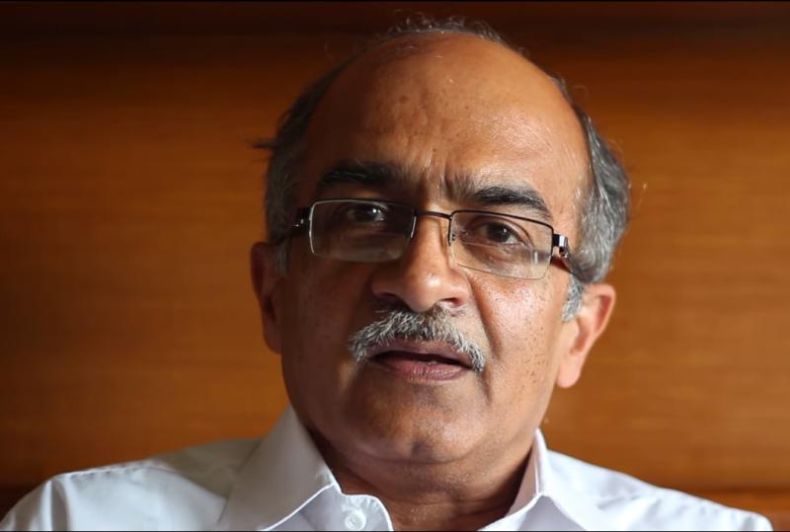
Tense moments were witnessed when Justice Ranjan Gogoi, sitting with Pinaki Chandra Ghose, was dictating order in the Supreme Court’s room 7 at 3:30pm earlier today, in the contempt petition against the Union of India, and the Delhi and Tamil Nadu Governments in the political advertisements case.
After the bench patiently heard Prashant Bhushan explaining the issues of alleged gross contempt involved in the case, Justice Gogoi began to dictate his order.
However, Bhushan stood up a few times to politely correct what appeared to him some factual errors in the order being dictated.
Justice Gogoi was not amused, and said: “Mr. Bhushan, to dictate the order is our privilege. We are not used to it. We did not interrupt you when you argued for half an hour.”
Prashant Bhushan then said “All right” and sat down.
Blatant violation of governments advertising
During his submission, Bhushan, representing the Centre for Public Interest Litigation, argued that both the Delhi and Tamil Nadu Governments, committed gross contempt of the court’s judgment in the case, which clearly said advertisements can’t be used for partisan purposes, and that in the guise of advertisements, governments cannot run down opposition parties and leaders.
Bhushan alleged that the Aam Aadmi Party Government in Delhi, through a television advertisement, blatantly glorified its leader, Arvind Kejriwal, which is impermissible under the judgment.
In its response affidavit, the Delhi government has denied waste of public money for partisan purposes. The advertisements only carried messages of the Government, it has claimed.
Justice Gogoi, in his order, mildly reprimanded the Delhi Government for its advertisements.
Jaya advertorials
Prashant Bhushan also alleged that the Tamil Nadu Government, not only used the photographs of the chief minister, J Jayalalithaa in the full page advertisements, when the judgment clearly banned it at that point of time (it was subsequently reviewed, to permit use of photographs of chief ministers), but had the temerity to call the advertorials which it released in the Indian Express as its own articles on the Chief Minister.
Despite Prashant Bhushan’s vociferous allegations, Justice Gogoi said the bench accepted the Tamil Nadu Chief Secretary’s affidavit denying allegations of contempt of court, and dropped further action against the state.
Ombudsman needs teeth
Prashant Bhushan’s third submission was that the three-member Ombudsman to oversee the issue of Government advertisements, which was constituted by the Centre on 8 April in compliance with the court’s judgment in the case, must be given some teeth to deal with violations of the judgment, and that it should be empowered to deal with issue of advertisements by the state Governments too, as none of the states have constituted similar Ombudsman.
To this, Justice Gogoi said the bench can’t arm the Ombudsman with the power to prosecute. “Why should we assume that everybody will be irresponsible?”, he asked.
The attorney general, Mukul Rohatgi, who was present in court, was seen nodding his agreement with the order, as dictated by the bench.